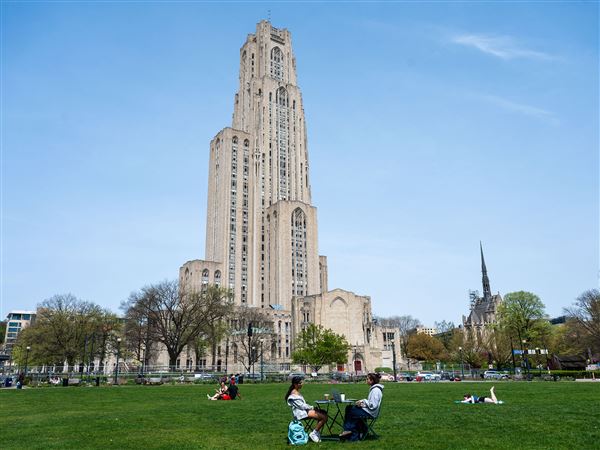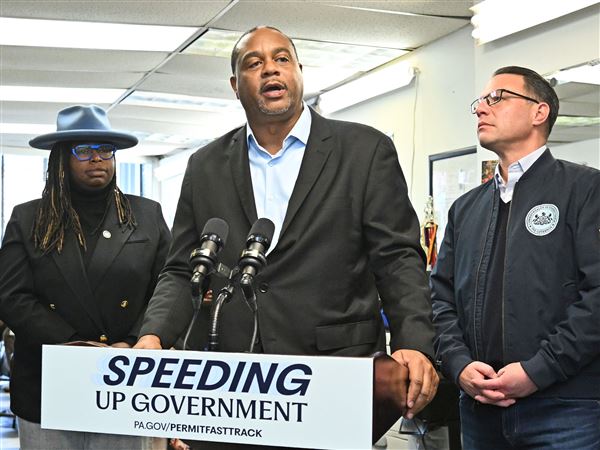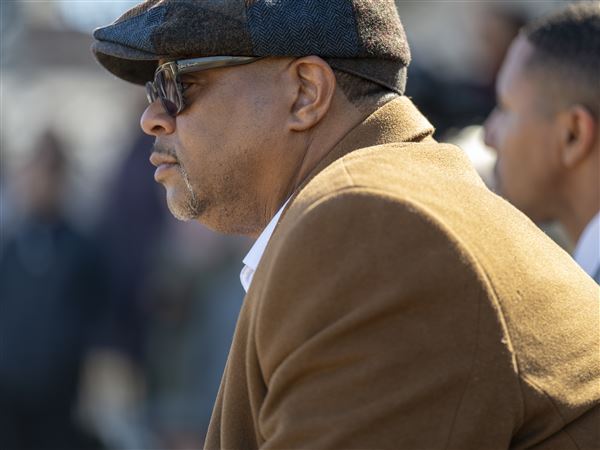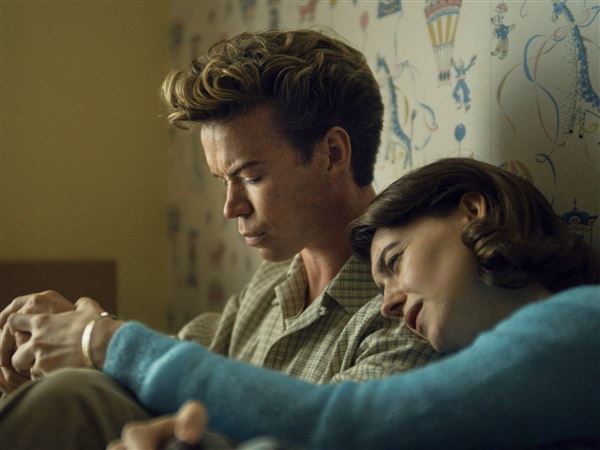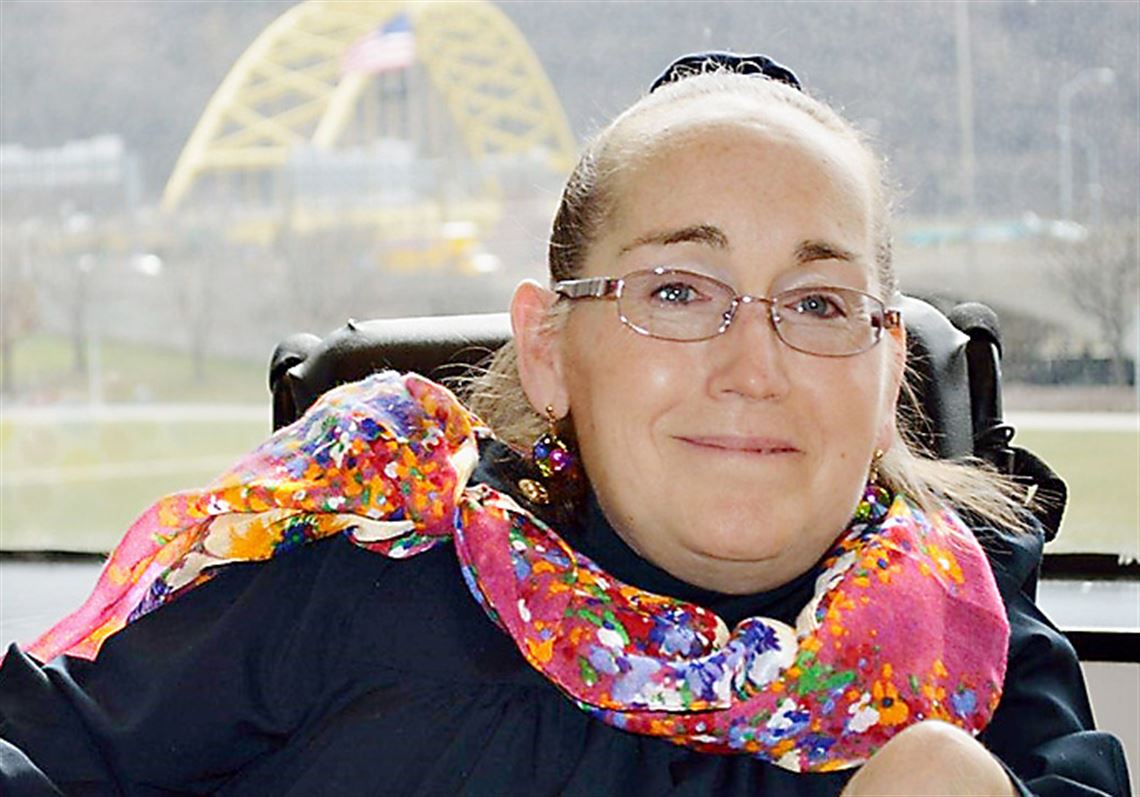In the late 1980s, a group of social activists in Pittsburgh envisioned a fund that would support grass roots causes as an alternative to traditional charitable giving platforms like United Way.
What evolved was the Three Rivers Community Foundation — a progressive fund that makes modest grants of no more than $4,000, and true to its founders’ vision, focuses on small nonprofits and social initiatives that spur community change.
To mark its 25th anniversary this year, the foundation has created a fund for disability rights in honor of Linda Dickerson, a longtime business consultant to nonprofits who has been a strong advocate for rights for people with disabilities in the Pittsburgh region.
It’s no coincidence that Ms. Dickerson, 54, is being recognized the same year the Americans With Disabilities Act celebrates 25 years as a federal law.
“Linda was instrumental in promoting ADA and helping get it passed,” said Nick Palazzetti, executive director of the foundation. “So this is the best year to do this.”
The foundation contributed a seed grant of $26,000 to launch the Linda A. Dickerson Fund for Disability Rights. As a result of outside donations, the fund now totals about $53,000, said Mr. Palazzetti. The foundation’s goal is to raise $100,000 by the end of the year and on Sept. 10, it will hold a fundraiser at Rodef Shalom Synagogue, Oakland, where Ms. Dickerson will receive a lifetime achievement award.
Like the disability rights initiative already in place at the foundation, the fund is expected to target groups and nonprofits involved in issues such as housing, education, health care, vocational training, voting rights and other services that benefit people with disabilities.
Among causes the foundation has supported in recent years are Save Our Transit, for which it provided funds to charter wheelchair-accessible buses so that people with disabilities could travel to Harrisburg to lobby for public transportation; and the Children’s Hospital Advisory Network for Guidance and Empowerment, a program led by Children’s patients with disabilities.
Ms. Dickerson, who lives and maintains her business Downtown, uses a wheelchair because she has Werdnig-Hoffmann, a rare, genetic neuromuscular disease.
As far back as her early years growing up in Greensburg, her physical limitations have driven her to help others, said her father, Logan Dickerson, who raises horses and runs a sports nutrition business, Protos Foods.
“She wanted to be as independent of her parents as she could be,” he said.
Ms. Dickerson was unable to comment for this story because of health issues, he said.
After graduating from Greensburg-Salem High School, Ms. Dickerson earned a bachelor’s degree in marketing and small business from Carnegie Mellon University and a master’s in career studies from Duquesne University.
In the mid-1980s she began publishing Executive Report, a business magazine, and in 1997 opened a consulting practice, Dickerson & Mangus.
From 2007 to 2009, she was CEO of the National Aviary but left that position citing differences with the organization over a range of issues including access for people with disabilities.
At the time of her departure, she told the Post-Gazette, “The aviary should make every effort so visitors of all kinds can participate and view all exhibits.”
She currently owns 501(c)(3)2, which provides strategy, research and fundraising to nonprofits and for-profits.
In addition to serving on the boards of numerous civic and university boards, Ms. Dickerson has advocated for disability rights as mayoral appointee to the City of Pittsburgh/Allegheny County Joint Task Force on Disabilities, and as a board member at Life’s Work; Three Rivers Center for Independent Living; the United Way’s Frail, Elderly and Disabled Task Force; The Children’s Institute; and the advisory board of Carnegie Library for the Blind and Physically Handicapped.
Disability rights is one of six target funding initiatives for Three Rivers Community Foundation. With its motto of “Change, Not Charity,” it has awarded about $1.2 million to more than 245 organizations.
Its other focus initiatives are economic justice; environmental justice; lesbian, gay, bisexual and transgender issues; racial justice; and women’s rights.
“What’s different about us is that we fund organizations that are too small or controversial to receive funding from larger, traditional foundations,” said Mr. Palazzetti.
Cynthia Vanda of Oakland, a founder of the foundation, was director of the Women’s Center at the University of Pittsburgh in the late 1980s when she was approached by a couple of individuals who had inherited money “and wanted to wealth to go to grass roots, social change kind of activities,” she said.
“They wanted their money not to go to traditional philanthropic things like arts and culture because they wanted more social change. They wanted an alternative to the United Way. Not that the United Way wasn’t doing good things, but we felt it was status quo kind of funding.”
With assistance from the now-defunct Funding Exchange, a New York-based network of foundations that supported grass roots social justice, the Pittsburgh activists established what was originally called the Three Rivers Community Fund with initial donations of about $50,000, said Ms. Vanda.
“Our biggest problem was we didn’t know how to ask for money but we survived, had an annual fund and developed more donors,” she said.
Among its early investments were community gardens, after-school programs, neighborhood block groups and some that have grown into well-established nonprofits such as Persad Center, which provides counseling and health services to the LGBTQ community; and the Needle Exchange, which later became Prevention Point Pittsburgh and provides treatment services and counseling for drug users.
“They address part of the nonprofit community that’s hard to get funding for,” said Cathy Raphael, a Squirrel Hill-based philanthropist and foundation donor who has served on its grants review committee.
“Three Rivers has its ears to the ground and can find interesting projects that are very important and give them their first boost of funding.”
Joyce Gannon: jgannon@post-gazette.com or 412-263-1580.
First Published: August 19, 2015, 4:00 a.m.
